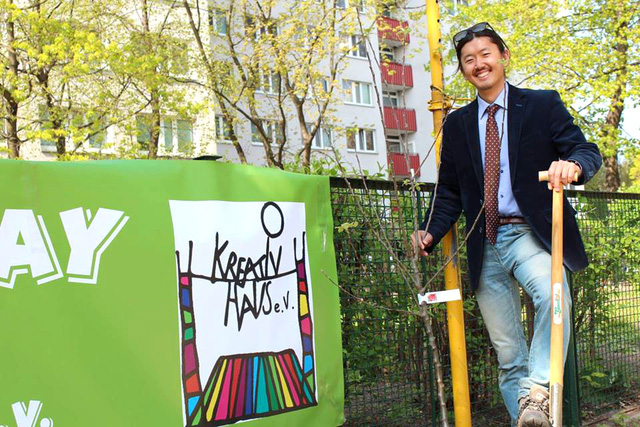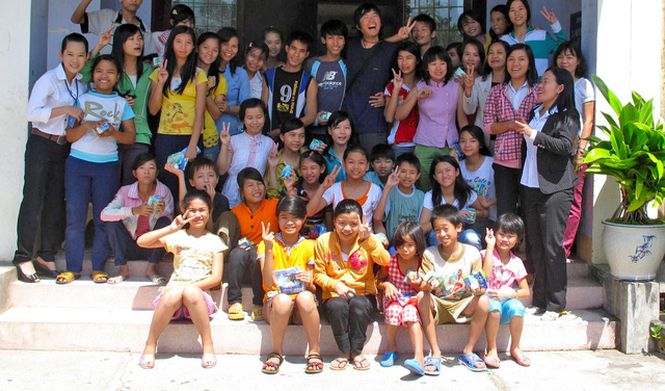Japanese man plans ‘ecological utopia’ for Vietnam
The term 'utopia' evokes the ideals of a perfect society. Yuji Miyata, a 35-year-old Japanese man, says adding an ‘ecological’ pillar to the community is the best and most logical way to bring that perfection into reality.

Yuji Miyata is seen in this supplied photo.
Miyata aims to bring a sense of ‘utopia’ to Vietnam through his Ekopia project.
According to the project’s website, the Ekopia’s goal is to establish an Ecological Social Community Center where residents can experience true happiness amongst fresh air, fine foods, and top-notch facilities.
The project is based on a five-pillar approach to creating a utopian community: organic farming using sustainable development practices, organic restaurants and cafés, care centers for the elderly, education for children, and the combination of local volunteer opportunities and cultural centers for learning.
Miyata’s inspiration for Ekopia is driven by what he views as society’s current shortcomings: a sense of personal disconnection and self-centeredness, poor food quality, air contamination, and a severely degraded environment.
While these are worldwide issues, Miyata chose Vietnam as the launching point for Ekopia due to its war-torn past.
He believes that the country’s ability to heal itself after tragedy has made its people particularly aware of the power of unity.
The Japanese idealist also has his own personal reasons for believing in the inherent generosity of Vietnamese.

Yuji Miyata and Vietnamese orphans in a supplied photo
On a global trek in 2009, it was Vietnamese in the poor northern province of Ninh Binh who helped him after he fainted from fatigue.
Determined to put theory into practice, Miyata has gone to great lengths to seek support.
A management student from RMIT University in Ho Chi Minh City, Pham Hoang Ngoc Lan Vy says Ekopia can fill the gap in awareness that is currently missing in today's society.
Ngo Minh Phuong, also an RMIT student, acknowledges the feasibility of the project and agrees with the volunteer environmentalist student group at her school that Ekopia is truly a benevolent cause.
Miyata has already visited Sunny Farm in Long An Province, 35km from downtown Ho Chi Minh City, to begin research on the project.
The farm focuses on progressive agricultural techniques and serves as a physical platform for young students to broaden their agricultural know-how and improve their soft skills.
| Walking to convey education, peace message In 2009, Miyata visited Vietnam and trekked the length of the country. He grew plants, visited orphanages, emphasized the importance of education, and taught local children to love the Earth. A part from a peace message, Miyata also underlined the significance of youth education, believing that instilling a sense of global responsibility in children is the only way to make a better world. |
VNF/TTO
Recommended
 Handbook
Handbook
Vietnam Moves Up 8 Places In World Happiness Index
 Handbook
Handbook
Travelling Vietnam Through French Artist's Children Book
 Multimedia
Multimedia
Vietnamese Turmeric Fish among Best Asian Dishes: TasteAtlas
 Handbook
Handbook
From Lost to Found: German Tourist Thanks Vietnamese Police for Returning His Bag
 Handbook
Handbook
Prediction and Resolution for the Disasters of Humanity
 Handbook
Handbook
16 French Films To Be Shown For Free During Tet Holiday In Vietnam
 Handbook
Handbook
Unique Cultural and Religious Activities to Welcome Year of the Snake
 Handbook
Handbook
